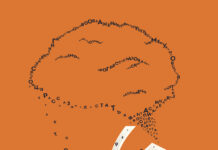 This week on MIA Radio, we interview Professor Michael Fontaine. Michael is Professor of Classics and Associate Vice Provost of Undergraduate Education at Cornell University in New York. He regularly consults on Latin for museums, institutions, dealers, and collectors, having exposed forgery in Renaissance and Dutch Golden Age paintings. In 2016 he received the Thomas S. Szasz Award for Outstanding Contributions to the Cause of Civil Liberties.
This week on MIA Radio, we interview Professor Michael Fontaine. Michael is Professor of Classics and Associate Vice Provost of Undergraduate Education at Cornell University in New York. He regularly consults on Latin for museums, institutions, dealers, and collectors, having exposed forgery in Renaissance and Dutch Golden Age paintings. In 2016 he received the Thomas S. Szasz Award for Outstanding Contributions to the Cause of Civil Liberties.
In the episode we discuss:
- How Michael came to be a Professor of Classics and Literature.
- How studying the ancient world helps us to understand what the first scientists thought about mental or emotional distress.
- The first use of the phrase ‘psychiatric ward’ which can be found at the Library of Alexandria in Northern Egypt.
- That the phrase that ultimately became the word ‘Psychiatry’ in ancient times actually meant a “Healing Place for the Soul” and is inscribed above library entrances even today (ΨΥΧΗΣ ΙΑΤΡΕΙΟΝ or Psyches iatreion).
- The links between the Rosenhan experiment and a comedic play written 2,200 years ago by the ancient Roman playwright T. Maccius Plautus.
- That, in the ancient world, there was no long-term incarceration in prisons or asylums.
- The relationship between the Hippocratic/medical model (the humoral theory) and the Epicurean model of mental or emotional distress.
- That, in the ancient world, depression didn’t exist, and that the solutions for unhappiness were based in the community or in Philosophy.
- That about 1700 years ago, the Roman Empire entered a state of decline and it became mandatory to become Christian and during this time the philosophical view of mental distress died away to be overtaken by a supernatural understanding.
- Some of the similarities between the Epicurean model and the work of Thomas Szasz.
- How Michael came to know and discuss some of these matters with Thomas Szasz and, following his suicide in 2012, presented an academic paper to the American Psychiatric Association on Thomas Szasz’ legacy.
- The statistics that show that one in every four women around middle age in the US is taking an antidepressant.
- Michael’s essay on Schizophrenia in the ancient world.
- The distinction between the causes of, and the reasons for, our behaviour.
- Ron Leifer having his career ruined because of his support for the ideas of Thomas Szasz.
- A poem from 2,100 years ago by the Latin poet Catullus, that deals with transgender identity, even though it is generally believed that gender identity issues are a recent phenomenon (last 50 years or so).
- How Greek Tragedy can help us understand the world, particularly those of Euripides such as Medea
Relevant links:
On Being Sane in an Insane Place—The Rosenhan Experiment in the Laboratory of Plautus’ Epidamnus
On Religious and Psychiatric Atheism: The Success of Epicurus, the Failure of Thomas Szasz
Mental Disorders in the Classical World (A Review)
Schizophrenia in the Golden Ass
What Do the DSM, Elvis Presley, and Dionysus Have in Common?
To get in touch with us email: [email protected]
© Mad in America 2018















Thank you for this interview. As professor Michael Fontaine points out, the ancient Greeks and Romans didn’t have lunatic asylums. Also, that eccentricity, madness, was more accepted, as of course it would have to be, in the community then than it is today. This is one of the many things you get from looking at these things in terms of historical context, and I imagine, he’d be the first to tell you that you can find out so much more from looking at ancient approaches to many of the problems that we encounter in the world today. It’s not until much, much later that madhouses and lunatic asylums start popping up like mushrooms, and you get institutionalization on any large scale to speak of. I’d say, right there, we have much to learn from the ancients.
Report comment
I’m no expert, but I think that most of what we know about the ancient world relates only to the upper class patricians. We know virtually nothing about the vast majority living then, as they were barely considered human. I would imagine that their “mental health” was not too great. No, they had no lunatic asylums, but they had a much freer hand when it came to killing “inconvenient” people. How about Socrates?! I don’t know if we have too much to learn from such “great” cultures, and I don’t know that their experiences are so relevant to ours anyway.
Report comment
Well, you’ve got a lot to learn then if you’d be willing.
The classical world was a class society, but it wasn’t all upper classes, nor was it mostly slaves. I think there is much that is known, and much still to be uncovered.
Socrates was found guilty of corrupting the youth of Athens, and ordered to drink hemlock. I think there are going to be historical parallels of relevance today should anybody choose to look for them.
We are the ancients in the sense that we are their direct intellectual descendants. Go to Greece and Rome, and you may find the literal blood descendants of these people who gave us so much in terms of sensibility, custom, arts, and literature.
Report comment
I respect your view however I would like to note that findings proved that the ancient theatre of Epidaurus was a place where they tried to heal mentally ill people or kill depression through the theatre and it was open to (all) the public. Certainly slaves were not part of the public but this is another controversial conversation.
Report comment
Mr. Fontaine makes several good points, and he is certainly not the first person to note that it is a worthwhile endeavor to strive to understand the ancients. Mr. Fontaine has also done a great service by bringing Szasz back into the conversation. But a few corrections and observations are in order.
First of all, the first mention of a “psychiatric ward,” was not found in the library in Alexandria. I understand that it was a tongue in cheek sort of comment, but we need to be clear, as Szasz was, about words and their definitions. The PSYCHES IATREION, or healing place of the soul, is in almost every respect the opposite of a psychiatric ward. I’m sure that Mr. Fontaine understands this, but it is important not to confuse the general public. The word “psychiatry” that we have inherited and as it is commonly understood was coined by Johann Christian Reil in 1808. This word was meant to denote the “medical treatment of the soul.” There is a big difference between a library that is a healing place for the soul, and a psychiatric ward that is for the medical treatment of the soul. As Szasz understood, it is absurd to claim that the soul can be treated medically. Again, I’m sure that Mr. Fontaine understands this, but his audience might not.
Mr. Fontaine makes good points about the connection between the humoral theory of diseases and the chemical imbalance hoax, and he also makes good points about the illusive nature of “schizophrenia.” Szasz wrote an entire book on the topic called “Schizophrenia: The Sacred Symbol of Psychiatry.” This ought to be required reading for every aspiring psychiatrist. If more people visited the PSYCHES IATREION to study Thomas Szasz’ works, perhaps there would be no more psychiatry, or psychiatric wards.
It is also important to recall that Szasz wasn’t just an atomist or an Epicurean who relaxed in his garden and philosophized about the myth of mental illness. He was an abolitionist who saw clearly the destruction that is caused by psychiatry. He attempted to resurrect the work of the original antipsychiatrist, Karl Kraus, and like Kraus, he paid a price for his truth telling. Like Kraus, Szasz has mostly been ignored, and when he hasn’t been ignored, he has either been rejected or misunderstood.
For the most part, Mr. Fontaine is right about the decline of philosophy and the rise of “science,” and he is right that microscopes and brain scans don’t tell the real story of what is going on when certain behaviors are diagnosed as “mental illness.” This is something that Szasz understood more clearly than almost anyone, and the reason why he could assert that mental illness is a myth.
In many ways, Szasz was the Socrates of psychiatry, and perhaps his suicide was meant to mimic Socrates in some way. He asked many of the right questions, and he articulated good answers to these questions. He championed liberty and responsibility. As a libertarian, his understanding of liberty was somewhat flawed, but at least he understood that psychiatry is a modern form of slavery that ought to be abolished.
Hopefully it won’t take 100 years for Szasz’ ideas to gain traction, although it might take that long since even after almost 100 years hardly anyone knows who Karl Kraus was.
Report comment
If I had to spend time on a “psych ward”, Dragon Slayer, I don’t know about you, but I’d prefer for it to be spent in a library rather than in a prison of sorts, and if I’m to receive “medicine” for my “soul”, let it be instruction from books rather than intoxication (or stupor) from drugs.
Institutional coercive psychiatry having been around for 400 years or thereabouts now, let’s hope that it won’t take another 100 years for what you call Szaszian ideas, or the demand for an end to such coercive practices, to gain traction. My point being, there was a before institutional psychiatry and, so far as I’m concerned, I’d love to see an after.
Report comment
Amen.
Report comment
Fantastic interview!
Report comment